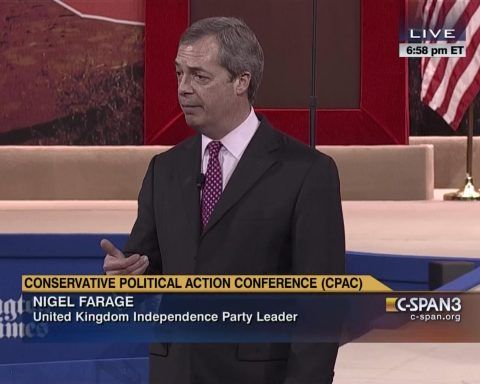By now Brexit has been analyzed from approximately every point of view, by everyone who wants to make a point with it; but amid the fear and festivity, one of the simplest points seems to have been overlooked.
At its core, the choice of the British people was between union and autonomy, with experience informing both sides, and they chose the latter.
Everyone is using the word historic to describe the Leave vote, because of its outsized impact on the world economy and the metaphorical cap it busted in the crown of the European Union (EU).
It’s unclear how many have actually considered just what makes this move so historic.
Beyond the stock tumble and the resignations, there’s an easily-identifiable trend for civil libertarians to be excited about, and that’s the trend toward decentralization of power.
Though the latest manifestation of this trend may have been political in nature, the build-up to it has been decidedly un-political, to the point of being ignored by Western elites. It is a trend driven by technological advancement, communication and networking innovation, and the growing market demand for efficiency and immediacy – a move toward individualism, localism, and compartmentalization.
To relegate the Brexit to a surge of British neo-nationalism does the entire movement a disservice. The vote was less a sudden swell of national pride, and more a rebuke of the proven ineffectiveness of the sprawling EU government in addressing the needs of everyday Britons.
The EU is a yellow cab in the age of Uber – struggling to justify its existence in the new economy of individual networking.
The semi-socialist conglomerate has exacted a heavy toll on the British people, while rendering little cultural or economic benefit. British government, while not exactly a fabled defender of individual rights, is certainly more attuned to the needs of its own citizens, who – like the rest of western millennial culture – see no reason to waste their time on anything that isn’t.
Governments are shielded from the forces of the free market by election intervals, which means that by the time Brexit rocked the polls, the demands and expectations of the British people had already been shifting for some time.
Similar dynamics are at work here in the US, as states begin to test the waters of federal tolerance by passing legislation that stands in direct conflict with federal policies.
The message is clear: government, like business and technology and pretty much everything else, is better when it’s smaller, closer, and more accessible.
Despite the momentum of the Bernie Sanders’ short-lived socialist insurgency with debt-laden college kids, the overall trend in western culture is still toward decentralization of power, and will likely continue to move that way as technology allows smaller and more local government the ability to more quickly and effectively respond to the needs of constituents.
Sure, the rise of the EU and the constant battle to preserve federalism here in the States have featured the occasional setback, but the historical context of this trend isn’t limited to the last few decades.
The history of Europe and the Americas features the fall of empire after sprawling empire, and the continued rise of smaller and more diverse nation-states that better represent native populations.
The defeat of expansionist dictators like Napoleon and Hitler, the breakup of the Soviet Bloc, the ethnic splintering of the former Yugoslavia, to some extent the Crimean conflict, and now the Brexit all show a glacial movement away from the Byzantine network of central bureaucracy and toward a performance-driven, object-oriented style of government.
Government is playing catch-up to a private industry that has already embraced this approach at nearly every level of industry and commerce.
The commercial space industry is leaving NASA in the dust, communications technology has clearly outgrown the utility model that President Obama’s FCC keeps trying to squeeze it into, and app-driven rating and review systems continue to demonstrate the obstructive irrelevance of the regulatory machine.
Consumers want everything smaller and more convenient, and it’s only a matter of time until government succumbs to this demand as well.
After all, standing in line at the DMV and waiting two weeks for a building permit are so last century.
Another noticeable trend that deserves mention is the decentralization microcosm evident in the post-vote demographics of the Brexit.
Voting was sharply divided along urban/rural lines (except in Scotland, where more complex motives are certainly involved) in a way that mirrors what I consider to be the single most important American voting pattern. Urban areas broke heavily toward Remain, while the more rural boroughs carried the Leave vote by wider-than-anticipated margins – an indicator that population centralization may be at a tipping point as well.
The British urbanization rate has slowed to a crawl and there are signs that the next tech-driven trend may actually be de-urbanization, which would dramatically intensify the need for more local governments with greater autonomy.
This all factors in as part of an overall decentralization movement that is flattening power structures and capsizing carefully engineered social systems throughout western culture.
In one way the decision to leave was shocking – the first apple to fall from the tree of corporate and government super-mergers – but in another sense it was predictable, even overdue.
Culture and technology have evolved far beyond the ability of traditional central authorities to govern – a truth evidenced by the fact that some legislative initiatives now rely on business and tech partners for enforcement.
Life, work, and commerce are increasingly happening at the Craigslist level – outside the grasp of outdated and unresponsive government agencies.
Big government has become obsolete.









